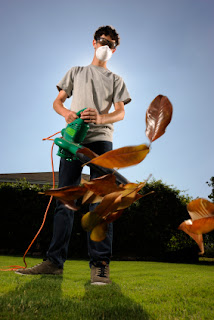Here are just ten of the scores of things you might want to use your summer months to accomplish. Since summer tends to be a bit of a lull in the grant writing year, here are a few things I try to accomplish to make the best possible use of the time:
- Now is the time to clean off that desk – Yes, get the shredder and the recycle bin and plow through those stacks of grant narrative revisions you don’t need, those research documents you need to file away for next year, and those bazillion dog-eared post its stuck to everything.
- Clean out your email In-Box – You may be pushing the memory limits on your mail provider anyway and let’s face it, you only need so many forwarded emails in there with PowerPoint presentations of waterfalls, kittens, and guys falling off stuff.
- Clean out your e-files like your documents file which I can imagine has tons (digital tons) of loose documents that you made up in a hurry and then didn’t have time to file away in their proper location, or maybe there wasn’t even a file folder created!
- Send out thank you/wish you a great summer cards and/or email to all your clients, previous clients, and anyone who might be a future client. Give them a heads up of any upcoming grant opportunities you’re aware of.
- Write some blog posts and queue them up to post automatically for the rest of the summer, one less thing to think about for the summer months if you take a little time to do it.
- Review your client list and note their priorities for the coming year then use the list to match their needs to potential grant opportunities. There may be some prep that can be done with them or you may be able to lock in a contract for writing in advance.
- Visit local agencies and organizations you don’t have relationships to meet people face to face. Just call and if you can get an appointment, you’re in. Do a little research on them and bring them a few examples of grants they might be interested in. Bring your marketing material and don’t forget your business card and your smile!
- Participate in training opportunities and networking events to expand your network.
- Fine tune your online presence. Are you using social media to your advantage? Are you positioned as an expert in grant writing online? It might be time to freshen up your web site.
- Review the results of the past year. Review readers’ comments and if you don’t have copies, contact your clients to see if they have them and just forgot to send them along. If you had some unsuccessful proposals, see if the grants that were funded have been posted by the funding agency and read them.
Now’s the time to refresh, reorganize, recharge, and renew, there’s a long winter of grant writing ahead of us all so a smart grant writer will use the slower summer months wisely!
Other Posts You May Enjoy:
Photo Credit – Henry S.
Published by Creative Resources & Research http://grantgoddess.com










